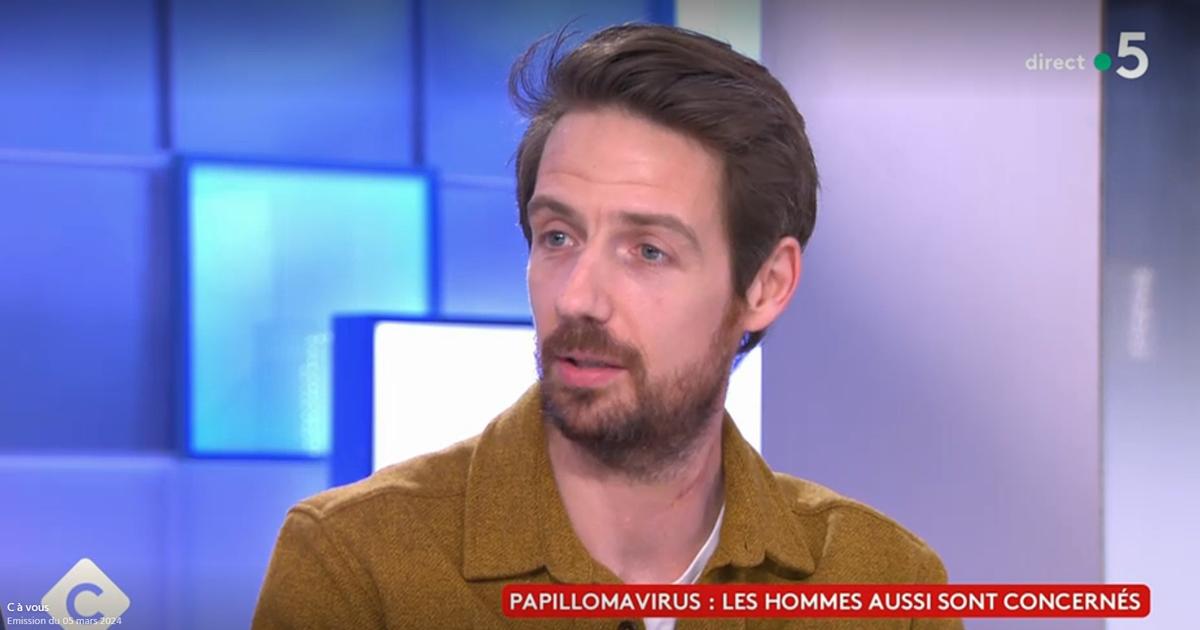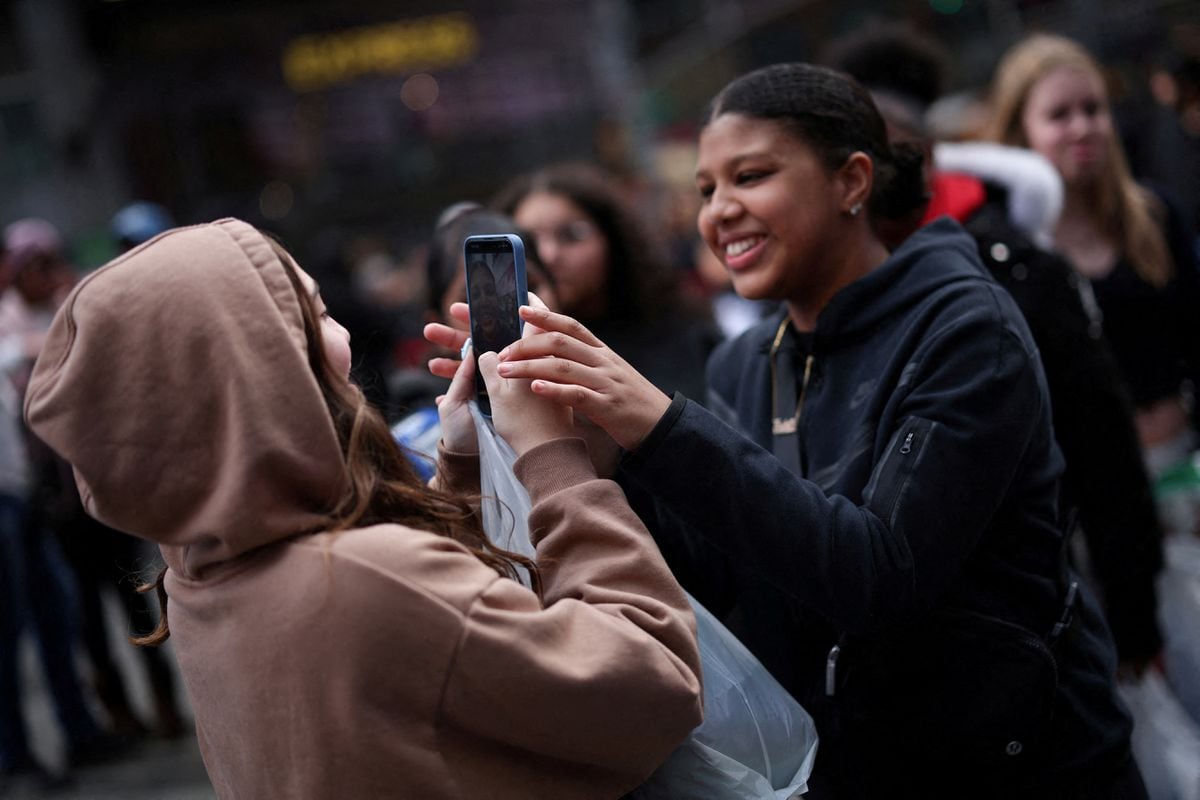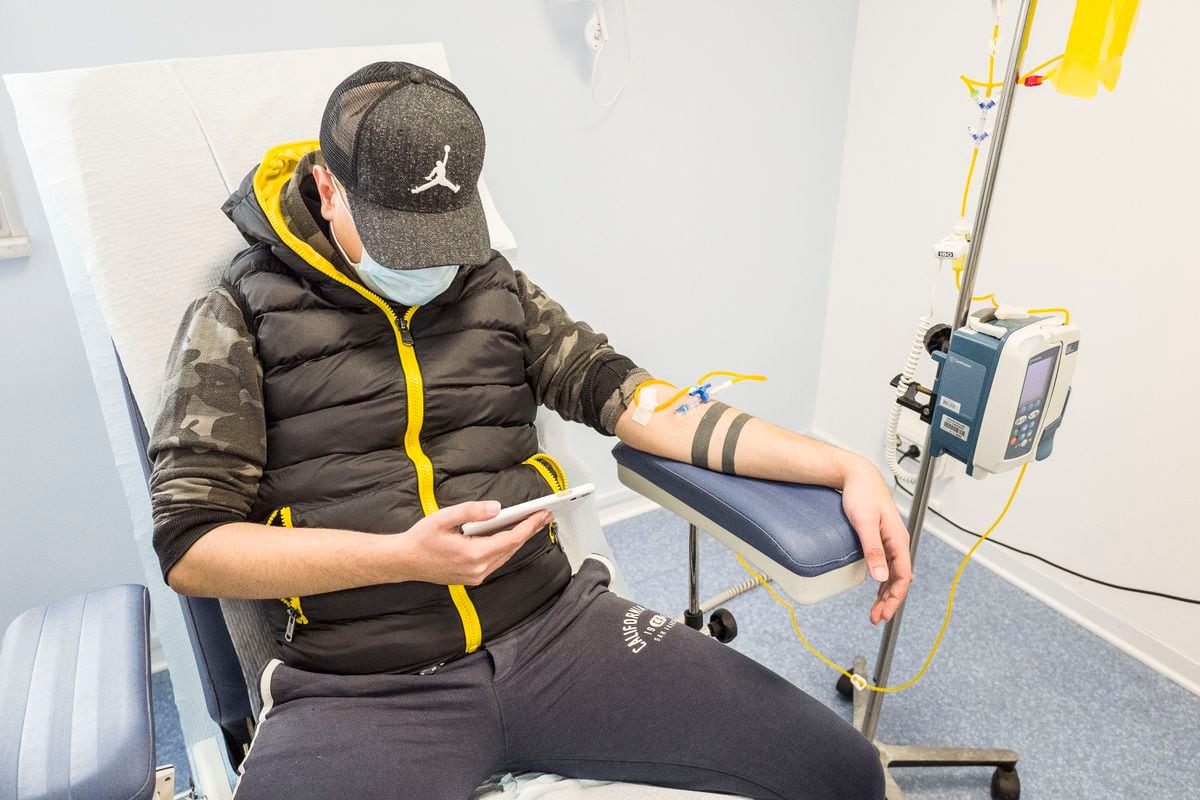The story of cancer has come out of the consultations and the privacy of homes.
On social networks, patients undergoing treatment talk about their experiences with the disease, comment on their day-to-day lives and share experiences with other patients.
The ailment is verbalized and there are personal stories that drag thousands of followers and support.
The Instagram account of Elena Huelva, a 20-year-old girl who explained her life with Ewing's sarcoma, reached one million followers and her death, on January 3, turned her motto ("My desires win") into a
trending topic
on Twitter with messages of support and affection for the young woman and her family.
Hilda Siverio's diary, with breast cancer since 2014, also has more than 300,000 followers, although her family has seen the most bitter face of the networks these weeks and has denounced cases of harassment of women.
Experts highlight the benefits of making the disease visible, but also warn of the risks of telling cancer in networks: the patient may lose control of his public exposure and other sick viewers may become frustrated with the story of others.
Sara Cervelló is not a friend of telling her life in networks.
If anything, she uses them to spread the word about cancer research and she participates in round tables with experts to give her voice as a cancer patient: she is 40 years old and at 37 she was diagnosed with a breast tumor with bone metastases.
“Each patient copes with the disease as he knows how, as he can or as he wants.
I use the networks to disseminate research, but I don't need to expose my day to day and generate content ”, she explains.
More information
Marisol Soengas, oncologist: "I am concerned that there are treatments that do not reach the patient depending on the city they are in"
She also follows some patient accounts, not many: "I follow some, but not actively because I don't want to open Instagram and see patients recounting their day-to-day life with cancer because I already have mine," she admits.
She remains, however, with the positive that the story of other patients brings: making visible a reality that she shares.
“The harsh reality is shown, that breast cancer is not pink, for example.
And when I see accounts like this, I feel like I'm not alone.
It is important to show the human side, that we are not just a number, ”she defends.
But she also assumes that this exposure has its risks, such as losing control of that account or being forced to tell what you don't want to tell due to external pressure: “This is not Netflix, an episode every week.
That person has to be able to decide what he explains, when he explains it and if he stops doing it”.
The voice about cancer has been raised for a long time.
Anonymous or famous people.
From Rocío Jurado in a massive press conference in 2004 where she announced that she was suffering from a pancreatic tumor, to the singer Pau Donés, who always spoke openly and even gave one last interview to the journalist Jordi Évole shortly before he died in 2020. Also the Angelina Jolie's announcement that she had undergone a double mastectomy as a preventive measure due to her high risk of cancer helped "make visible a reality that exists," says Sonia Pernas, an oncologist at the Catalan Institute of Oncology (ICO).
With the rise of social networks, this speaker has evolved and anonymous patients, such as Huelva, Siverio or young Charlie, a tiktoker from Alicante who also died last summer from Ewing's sarcoma, have taken the floor to tell,
The experts consulted celebrate the positive impact of reporting cancer in networks and making the disease visible.
It can serve, says Pernas, to “demystify” the ailment: “Giving visibility to all this is good and it can help other patients to demystify it when they see the day to day.
But it must be clear that each person's experience is different.
Each patient is a world.
There are many types of tumor and each person responds differently, ”she warns.
Paco Gil, head of Psycho-oncology at ICO, assures that the use of social networks is "a resource that people appreciate": "The important thing about the social network is the attitude with which they face the disease.
People feel validated.
But it is important that there is truth, that a false illusion is not generated either ”.
No two patients are the same and their way of dealing with the disease is diverse, the experts insist: some may do well to tell the world about it and others, the opposite.
There is no single way of living with cancer and none is wrong or incorrect, warns Tania Estapé, president of the Spanish Association of Psycho-oncology: “Whoever does it, vents, feels company, needs it to externalize it.
But, be careful, the one who is most exposed does not have to be the one who is coping best or the one who is more psychologically adapted to the disease.
Sometimes people who put themselves out there do it as a way to calm their anxiety.”
The “trap” of positivism
In one of her latest posts on Instagram, from the hospital, Hilda Siverio pretends to sing a song with her daughter under a text that reads: "We continue with the illusion of fighting with joy."
The feeling of struggle and positivity, the experts point out, "can be good" for many patients, but Estapé warns, on the other hand, of the "positive thinking trap" and the frustration of sick spectators who do not achieve the attitude of the patient who recounts his life in networks: “They may feel that if you don't smile, you don't do it well.
That if I'm not positive, I'm doing it wrong.
But it is logical in this process to have a bad time.
You have to remember that, in networks, you see what the other person wants you to see.
One of my tasks is to explain that nothing happens to be sad or angry with life, ”says the psycho-oncologist.
The experts point out that in cancer "there is a sociological component that goes with the times" and the networks, points out Estapé, "are involved in day-to-day life".
Above all, in the youngest, like Elena.
But they remember that space must be left for each patient to carry the disease as he wishes: “It seems that it is mandatory to explain it, that if you don't tell it, you don't assume it.
But each one has to do what feels good to them”, exemplifies Estapé.
Cervelló, for example, admits that it took him a year to make his illness public: “It is not my thing to generate content.
The time I have is very limited and I prefer to dedicate my efforts to other things.
Seeing that others carry it with more strength or resilience does not mean that you carry it badly.
For me, for example, cancer has nothing positive and has taught me nothing."
Another sensitive issue, according to the voices consulted, is the impact that the death of a patient leaves on followers.
“In the women's group in which I participate, this news reaches all of us and we share it and discuss it.
They have a negative impact on a personal level and on the group of patients.
It depends a lot on how you manage life, illness and death”, advances Cervelló.
Estapé admits that, after the death of a patient who recounted his life in networks, you see "a cascade of depressed or frightened patients" and learning of the death of a famous person, he adds, is "a trigger for fear of relapse."
With the death of Pau Donés, the psycho-oncologist recalls the feeling of some of her patients, "of resignation, that feeling that whatever you do, things are not going to go well."
Gil agrees that, in his opinion, the death of someone known does not imply a permanent psychological impact, but it does unleash an episode of "emotionality" and some patients, for example, cry in consultation and express their emotions.
Threats and hoaxes
Sonia Pernas advocates, in any case, for "responsibility" when sharing content about cancer on social networks.
Responsibility with the information that is disseminated and the exposure that is made of oneself.
"I would advise, if it is done, which is fine, to have the support of the oncologist who treats you to be aware of the negative and positive impact that it can have."
The doctor recalls that all information disseminated must be truthful and scientifically endorsed.
"Patients are more informed and empowered, but be careful where you get your information so you don't create false expectations or say things that aren't true."
Hoaxes in health continue to swarm in the networks and the population affected by a tumor are vulnerable people.
Cervelló insists on the "importance of disseminating information responsibly".
“There are many of us who are watching, the situation is very dramatic and you are holding on to a burning nail.
The ease with which people recommend things without scientific endorsement is brutal, ”he laments.
You don't get cured by being positive or a good person, dismantles Estapé: “There is a harmful influence.
The patients arrive and tell you: 'It's because they told me that if I'm not positive, I'm not going to be cured.'
But there is no evidence of that.
It is true that people with a slight depressive tendency tend to take less care of themselves, let go and follow up with less follow-up visits, but it is a very light association, ”he qualifies.
And she gives another example: “I remember a lot the case of Rocío Jurado, the messages on television that said that, since she was strong, good and brave, she would be cured.
But you have to be careful with these words because in cancer there is always a part of chance: there are strong, good and brave people who are not cured”.
As happened in the case of Hilda, the other great risk of exposure in networks is the harassment that patients may suffer.
Or their families.
In her case, Siverio's daughter denounced "threats", "lack of respect" and demands from followers who demanded to know the health status of her mother.
At the time of her, when the use that she was going to make of her disease in the networks was raised, Cervelló already weighed these risks: “And I asked myself: what good will it do you?
Is he going to make up for all this?
The risk is that you don't have control and that they end up forcing you to do or say something you don't want.
I don't need to expose my day to day and generate content”.
You can follow
EL PAÍS Salud y Bienestar
on
,
and
.

/cloudfront-eu-central-1.images.arcpublishing.com/prisa/VFYYQ6PSJJGO3FIZCL7FAJQJQU.JPG)


/cloudfront-eu-central-1.images.arcpublishing.com/prisa/WXJUHSN7QZDSBEMDZPHM3A2NNE.jpg)


/cloudfront-eu-central-1.images.arcpublishing.com/prisa/BJVRV7DAZNFD5FN7F7PQRD3VCI.jpg)

/cloudfront-eu-central-1.images.arcpublishing.com/prisa/6M4PW47DCNEBNJKTRL54HEQV74.jpg)





